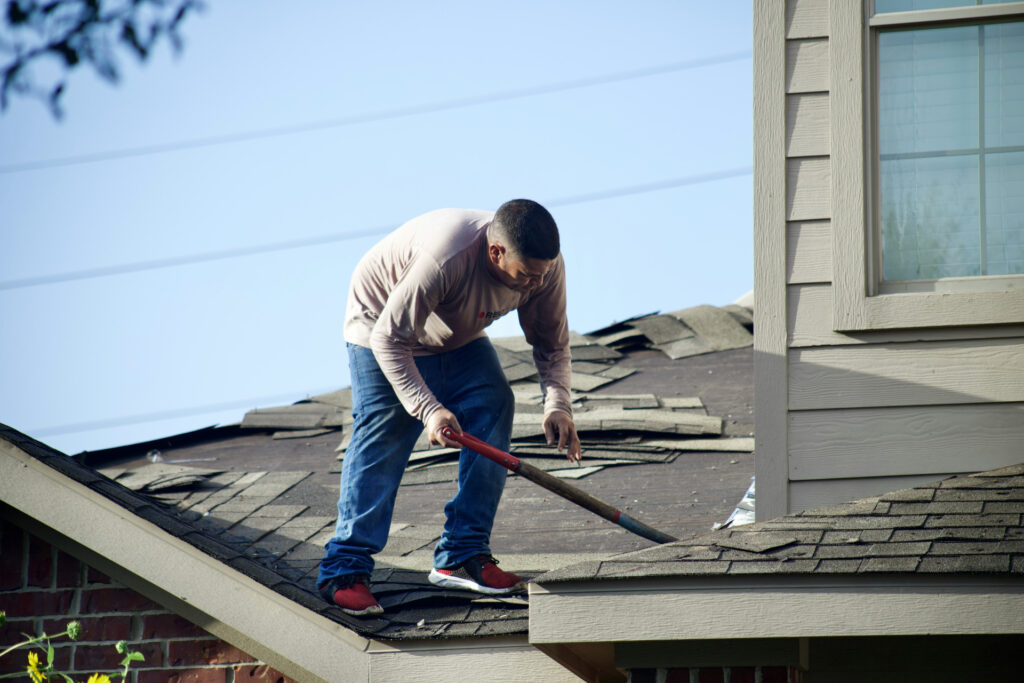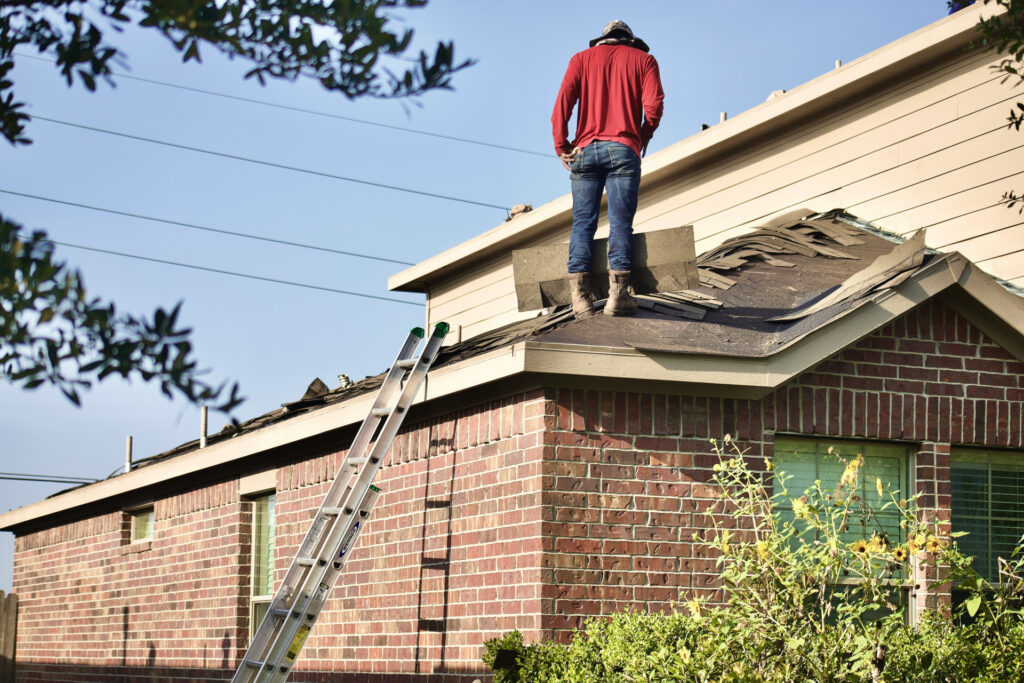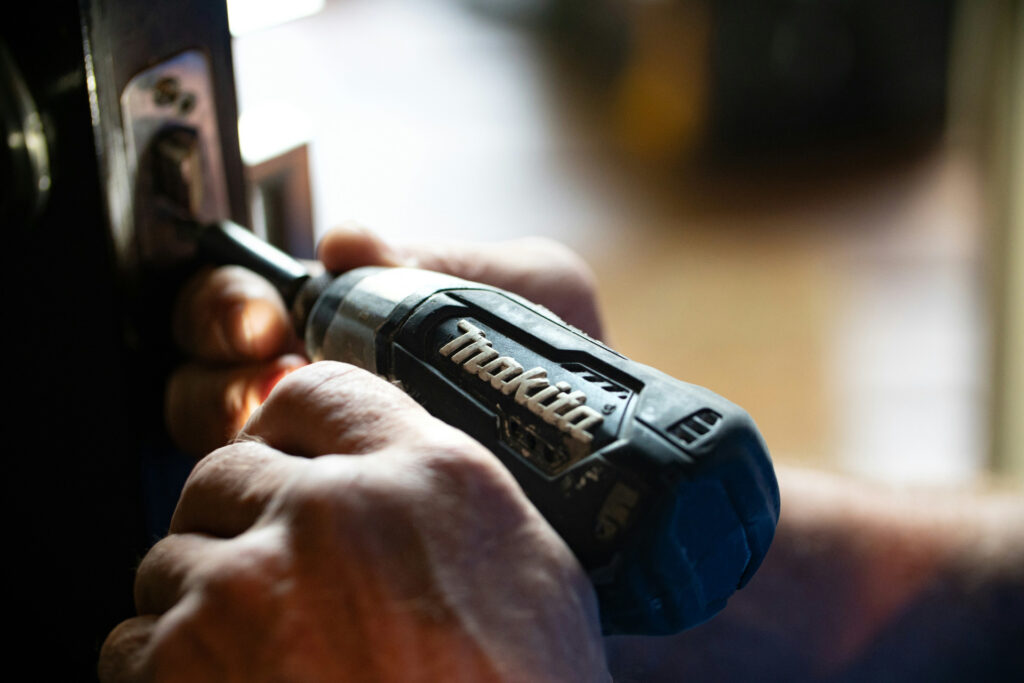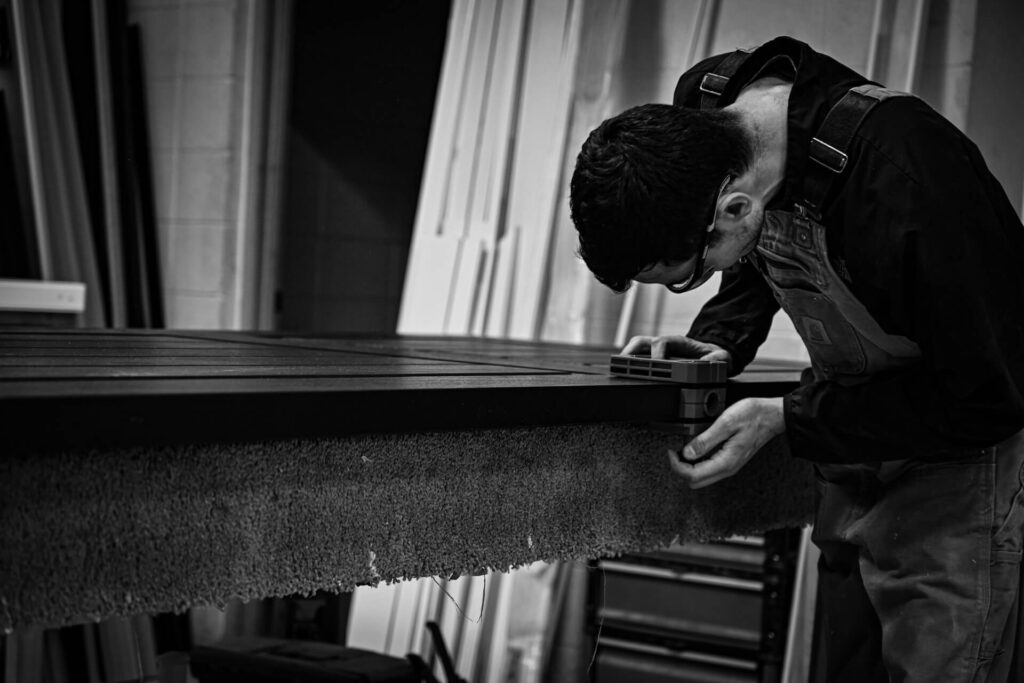
We are reader-supported. When you buy through links on our site, we may earn an affiliate commission.
Severe weather events are becoming more frequent. Most people look at a storm’s aftermath and feel horror and empathy. But some unscrupulous businesses look at a storm and see only dollar signs. If you are unfortunate enough to need major repairs following a storm, understanding how the minds of storm chaser contractors work will help you anticipate and avoid their tactics.
What are Storm Chaser Contractors?
Storm chaser contractors are businesses that travel to areas hit by severe weather events. There, they target homeowners who are in desperate need of repairs and building work, especially roofing. Often, they use deceptive tactics to pick up work.
Once hired, there may be issues with poor quality workmanship, defective repairs or unscrupulous business practices — for example, it’s not uncommon for them to take a deposit but never complete the work, or to use inferior materials that are not fit for purpose. If repairing your roof, for example, they may not know which types of roofing materials are best for your storm-prone area — and nor are they likely to care.
The scale of the storm chaser contractor problem is alarming. In 2023, for example, severe weather events caused more than $93 billion in damage — but the National Insurance Crime Bureau estimates that more than 10% of that was lost to storm chaser contractor fraud. This is not only a tragedy for the individual homeowners involved, but it also drives up insurance premiums across the board.

Red Flags That You Are Dealing With a Storm Chaser Contractor
To spot a storm chaser contractor, it’s important to understand how their minds work and how their tactics and procedures differ from reputable local contractors. After all, following a natural disaster or severe weather event, trustworthy contractors will also be hard at work in your area. How can you tell the difference? Here’s a quick reference table on how storm chaser contractors work.
| Storm Chaser Contractor | Reputable Local Firm | |
| Arrives immediately after the storm | Yes, usually uninvited | Only if contacted or referred |
| High-pressure sales tactics | Common | Rare |
| Local references | Rarely available | Readily available |
| Licensing/Insurance | Often missing | Always provided |
| Upfront payment required | Large deposit or full payment | Modest deposit |
| Written contract | Vague or missing | Detailed and clear |
| Insurance fraud encouragement | Sometimes | Never |
The Psychology Behind Storm Chaser Contractor Tactics
A storm chaser contractor may contact you by phone or text or, often, face to face at your door. They are typically skilled at manipulating emotions and forcing decisions, especially when homeowners are vulnerable following a disaster. Here are the most common psychological triggers they use, why these tactics work, and how to respond.
Urgency and Scarcity
Fraudulent contractors often claim there’s a limited window to get repairs done or to “lock in” special pricing. They may say things like, “We only have a few spots left,” or “Your insurance won’t cover this if you wait.”
- Why it’s effective: After a storm, homeowners are anxious to prevent further damage and to get life back on track. The fear of missing out on help or losing insurance coverage pushes people to act quickly.
- How to respond: Take your time. Legitimate contractors will allow you to source multiple estimates without pressuring you. Contact your insurance company directly to confirm deadlines and coverage.

Authority and Expertise
Unscrupulous storm contractors may present themselves as experts, sometimes even wearing official-looking uniforms or using logos that mimic local agencies. They might say they are “approved by your insurance company,” or “working with FEMA.”
- Why it’s effective: In stressful situations, people are more likely to trust someone who appears to be from authority, or who seems knowledgeable.
- How to respond: Ask for official identification and verify their claims with FEMA or your local government. FEMA officials will always carry government ID, will never charge you for an inspection and will never ask for your bank information or financial details. FEMA and government agencies also do not endorse specific contractors.
Social Proof
Often, storm chaser contractors will try to leverage social proof to persuade you. Social proof is the notion that if other people are doing something, you should probably be doing it too. Fraudulent contractors may tell you that “your neighbors have already signed up,” or show you a list of supposed local clients. They might even have trucks parked in the neighborhood to create the illusion of widespread takeup.
- Why it’s effective: Seeing others take action — especially neighbors — can make homeowners feel safer about taking the same decision themselves.
- How to respond: Speak directly to neighbors to confirm if they have used the contractor and were satisfied. Do your own research.

Sympathy and Rapport
Some disaster fraud contractors use empathy, sharing personal stories or expressing concern for your family’s safety and sympathy for what you have experienced. They may offer small favors or try to quickly build a friendly relationship.
- Why it’s effective: Building rapport lowers your guard, especially after a traumatic event. You are therefore more likely to trust the contractor and less likely to scrutinize their credentials. It can also be hard to say no to someone you have spent some time chatting with and who appears kind and helpful.
- How to respond: Keep an emotional distance. A contractor — genuine or otherwise — is not your friend. They are there to do a job. Don’t let emotions override your need for due diligence. Insist on seeing credentials and references, and insist on a written contract.
High-Pressure Sales Tactics
Unscrupulous storm contractors may push you for an immediate signature, discourage you from seeking other bids or warn you that “delays will cost you more.” They may say, “If you don’t sign today, the price will go up and we can’t guarantee we will have enough materials for your home.”
- Why it’s effective: High-pressure sales tactics exploit the stress and confusion homeowners feel following a disaster, and make it hard to think straight or compare options.
- How to respond: Never sign anything on the spot. Get at least three written estimates from local, established contractors. Remember that you will not lose out by taking time to think things through.
Recognizing how the minds of storm chaser contractors work and the psychological triggers they use will help you protect yourself. If you feel rushed, pressured or manipulated, it’s a red flag. Take a step back, verify credentials and consult trusted local resources before making any decisions.

What Recourse Exists Against Storm Chaser Contractors?
If the worst comes to the worst and you do find yourself scammed, do not panic. Here’s what you should do:
- Warn your neighbors: Act quickly to share your experience with others locally, which can help them avoid similar scams.
- Report the fraud: Contact local law enforcement to file a police report. Most states have consumer protection divisions of the State Attorney’s office that investigate contractor fraud. You can also file a complaint with the Better Business Bureau to help warn others. The National Center for Disaster Fraud also has a 24/7hotline at 866-720-5721.
- Contact your insurance company: Notify your insurer immediately if you suspect fraud or shoddy work related to a claim. They may have the resources to investigate and may withhold payment to the contractor if fraud is suspected.
- Check for restitution funds: Some states have funds to compensate victims of contractor fraud.
- Seek legal advice: Your options will vary from the Small Claims Court to a civil lawsuit, or you may be able to file a claim against the contractor’s bond, where applicable. If your state requires contractor licensing, file a complaint with the licensing board.
- Document everything: Keep all contracts, receipts, photos and communications, which will be vital to any investigation or legal action.
- Forgive yourself: Scams can happen to anyone, especially at a time of great stress and upheaval, so don’t beat yourself up about allowing this to happen.
Staying Safe After the Storm
Storm chaser contractors are a scourge, but if you know what to be alert for, you can avoid being scammed. If you are unlucky enough to have to deal with the effects of a storm or disaster, stay calm, keep your wits about you and choose your contractors wisely.







